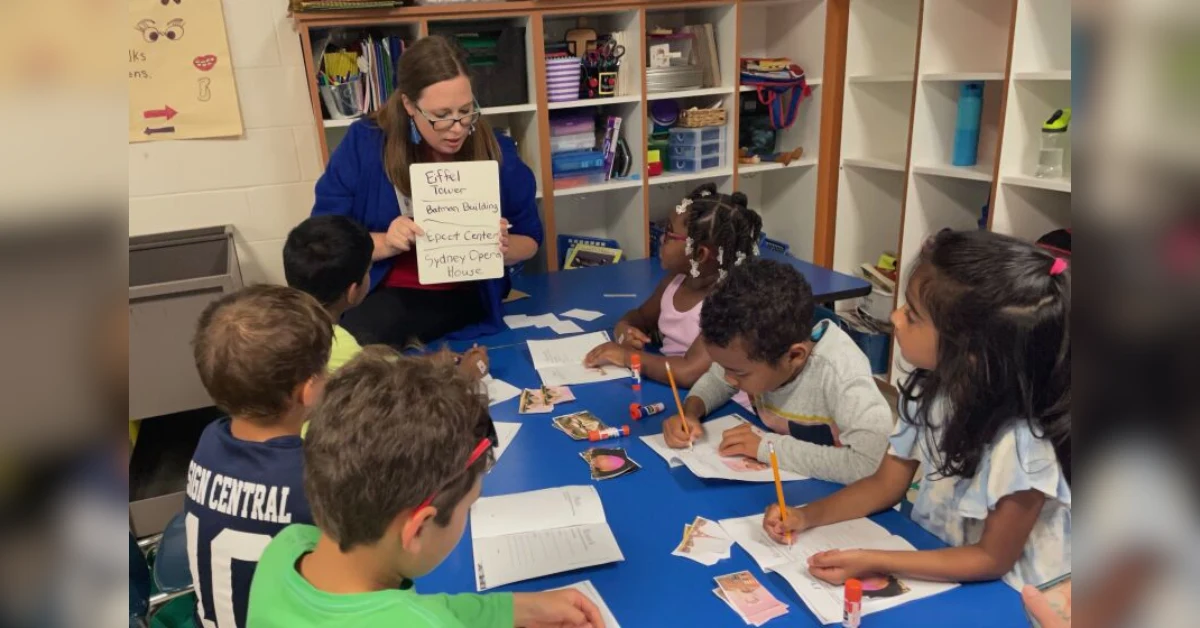Kamryn, LaQuencher Sanders’ 8-year-old daughter, wants to finish third grade with few days left. She had been a member of the kindergarten class that COVID forced her to be sent home in March 2020. She was one of the first graders who had studied online for a year while the virus spread.
Her reading test results in second grade led Memphis-Shelby County Schools to identify her for retention in accordance with a new policy. She had to attend summer school and receive tutoring throughout third grade if she didn’t want to fall behind.
This year, as the end of the school year drew near, she began to worry that her reading test results from the spring would not have been high enough for her to advance to the fourth grade automatically.
She would probably have to attend extra summer school and receive tutoring for an additional year to avoid having to retake the stage.
Kamryn came to school early, as usual, the day her teacher would give her those grades. But at some point that morning, she left her elementary school through the front doors and carried on.
Before she stopped and requested assistance, she had already traveled a mile alone. Just before a significant intersection, police grabbed her and transported her back to Kate Bond Elementary School.
She eventually admitted to her mother that it was all simply too much.
“She told me that she was tired of school,” Sanders stated.
After a rough start, many Tennessee third-graders learned in May that they may need extra testing, summer school, and tutoring because they failed a standardized reading test. A state statute passed last year to increase literacy and address pandemic-related learning loss mandates the programs.
60% of third-graders statewide were not proficient. 6,000 MSCS students failed.
This MSCS cohort faced reading score penalties for the second time. The district temporarily retained last year’s second graders to improve reading proficiency.
The new state regulation is based on the TCAP English language arts portion, unlike the MSCS policy based on 12 scores.
In May, those scores surprised some families. Kamryn’s classmates anticipated more school days and fewer break times. However, the reality was still hard.
Local School Boards Opposed Focus On A Single Test
Lauren Giovannetti was shocked. Anders, her 9-year-old son, tested for the district’s gifted education program. He passed four benchmark tests this year.
He achieved “approaching” competency on the state’s four-level TCAP test, the only one that mattered for this year’s third graders under the retention rule.
Unless they pass a retest, challenge their outcome, or qualify for an exemption, pupils at that level must attend summer school or tutoring. (Students with reading impairments, little English learning time, and students who have been held back are exempt.)
Giovannetti said the results made Anders ill and cry. He retested at Grahamwood Elementary School. Giovannetti noted that because students who had to retake the test were pulled out of class, peers knew which students scored well enough to advance to fourth grade automatically.
“I just don’t understand why this is the only factor that they’re looking at for something that’s such a big deal,” Giovannetti said.
Local officials expected the TCAP findings and retention threat to shock some families. “Even third graders who are performing at grade level could be subject to retention,” MSCS and suburban school board members wrote to Congress about the potential legislation in 2021. They maintained that state test proficiency is not grade-level mastery.
The state began offering the retest to struggling 3rd-grade readers on Monday. By Friday, 25,304 students had submitted a second reading assessment, reports @TNedu. https://t.co/LubRtz7k1k
— Marta W. Aldrich (@marta_w_aldrich) May 26, 2023
They urged policymakers to use a “comprehensive assessment” rather than a single state test to identify third graders for retention, which might have “possible negative life-long effects.”
“It’s not appropriate to put this much pressure on a 9-year-old,” Giovannetti says.
Memphis and state families united in their dissatisfaction with the bill, and lawmakers accepted several recommended adjustments, including one that adds one test for some pupils. The modifications will take effect next school year.
On his third-grade graduation day, Giovannetti’s son received his retest results. He missed “proficient” and fourth grade by one answer.
Giovannetti appealed using Anders’ earlier benchmark test results. She told Chalkbeat it was authorized within days, making her wonder why the earlier score wasn’t counted.
“There’s something off here, and I don’t think it’s 6,000 kids,” she says. “I think we need to look into this test, and make sure it’s really measuring what we want it to measure.”
Students Went Through Two Years With The Threat of Retention
MSCS administrators said they’d told pupils they’re more than a test score. However, the state statute states that one TCAP score may determine these pupils’ summer and school years.
The district attempted to improve reading assessments by instituting a second-grade retention policy. Tennessee’s reading retention policy was based on third-grade reading scores, as did other states.
In 2019, with a lofty literacy goal and stagnant reading scores, the board approved the policy. When this year’s third graders entered kindergarten, school administrators stressed reading as a gateway to further learning.
Due to the epidemic, district officials contemplated suspending the policy, but the third grade was too late to intervene. Students returning from online school faced retention in second grade.
Giovannetti recalls tough second grade as teachers prepared pupils for third grade. Her son completed third grade without summer school. She claimed the state’s third-grade retention statute was “kind of all we heard about” this year.
The district retention policy is gone. MSCS abruptly canceled it in August.
For more up-to-date news, click the link below for the latest information!
- Suspect Arrested After Violent Rampage Leaves Three Deαd In San Jose And Milpitas
- Multiple Injuries Reported As Building Collapses In New Haven, Connecticut
- Escambia County Mother Files Lawsuit Against School District Over Her Daughters’ Education
By then, the learning deficits created by online schooling, which continued in MSCS long after other Tennessee districts resumed in-person school instruction, had persuaded Tennessee lawmakers to enact a statewide policy based on one test. These pupils faced retention in third grade.
“We were ahead of the game,” Board members were informed in an August committee meeting by Angela Whitelaw, one of the two acting superintendents for MSCS. “But now we need to align all of our resources and all of our work along with the state.”
Facing More Schools, Students Wanted To Go Home
Kamryn’s mother, Sanders, claimed to have followed her daughter’s internet correspondence from school and parent meetings.
Teachers in the third grade had already begun discussing retests before the results, and some children, like Kamryn, had even signed up for summer school in anticipation of the results.
Sanders said she was shocked by the walkout episode because her daughter has always seemed to like school.
Last year, she was required to attend summer school and receive reading instruction all year. However, she continued appreciating other things, such as music and painting. According to her mother, she also assisted her peers in learning their multiplication facts in math.
“she just said she wanted to go home on that day,” Sanders stated.
In a statement regarding the girl’s experience, the district noted that kids have access to therapy and other emotional supports and that her school still provided enjoyable end-of-year festivities.
“Districtwide, we’re working hard to uplift and celebrate our third graders,” the district stated, “because we know the state-mandated reading retention law has deeply affected these little learners.”
Tyler is a passionate journalist with a keen eye for detail and a deep love for uncovering the truth. With years of experience covering a wide range of topics, Tyler has a proven track record of delivering insightful and thought-provoking articles to readers everywhere. Whether it’s breaking news, in-depth investigations, or behind-the-scenes looks at the world of politics and entertainment, Tyler has a unique ability to bring a story to life and make it relevant to audiences everywhere. When he’s not writing, you can find Tyler exploring new cultures, trying new foods, and soaking up the beauty of the world around him.
Contents











